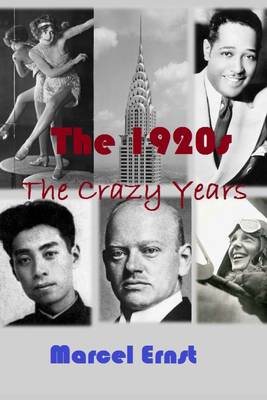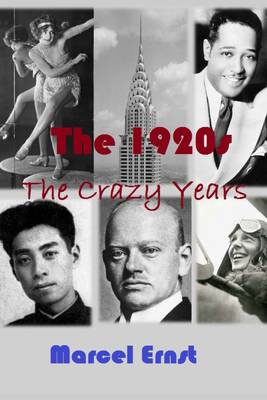
- Retrait gratuit dans votre magasin Club
- 7.000.000 titres dans notre catalogue
- Payer en toute sécurité
- Toujours un magasin près de chez vous
- Retrait gratuit dans votre magasin Club
- 7.000.0000 titres dans notre catalogue
- Payer en toute sécurité
- Toujours un magasin près de chez vous
Description
Last year I researched, wrote and published a trilogy dealing with each of the 20th century's final three decades. My chief advantages for covering that period: real-life experiences and memories associated with events. That privilege does not apply to the Jazz Age. Even my late father's recollections (he had been born in 1928) concentrated on the deprivations of the 1930s and the Second World War. My paternal grandfather, who had been in his twenties then and passed away in 1984, was a blue-collar man of few words. He seemed to enjoy listening to sailors' songs. My maternal grandfather, on the other hand, did jot down some recollections at my prompting during the 1980s (he died in 1994). In the 1920s he had been a farmer; he had found the agricultural property in Schopfheim near the Swiss border at his father's behest. Writing in 1984, Grandfather Moser mentioned that 1923 had been the worst year: "We became millionaires and billionaires, but were also the poorest. In the end, the authorities suspended the printing of banknotes; instead, they used a stamp with progressively longer digits. Cities and towns resorted to issuing their own currency." In addition to his recollections, grainy movies and analog recordings have served as reminders of a tumultuous time. The popular television series Downton Abbey recalls the period from the perspective of Britain's landed aristocracy and their servants. Most inspiring, however, turned out to be the German-language Netflix series, Babylon Berlin. It vividly recreates the deteriorating socioeconomic and political conditions of the Weimar Republic in 1929. The events of 2020 also recalled some of the experiences of a century earlier: a global pandemic, economic shutdowns and political polarization as well as agitation. Even though many volumes have been written about the decade, I concluded that something worthwhile might come out of taking a fresh look from a civil rights perspective detailing behind-the-scenes developments of an era famous for its vitality and gusto. As far as possible I incorporated the latest research and insights. In North America, the decade has frequently been referred to as the "Roaring Twenties" or the "Jazz Age", while Europeans occasionally label it the "Golden Age Twenties," due to the economic boom that lasted until 1929. French speakers call it "Les années folles" (the crazy years), emphasizing the era's social, artistic, and cultural dynamism. The folks eking out a meagre existence under the yoke of colonialism remained less enthusiastic. To them, the period remained part of the subjugation and humiliation that eventually would precipitate a wave of independence movements. One of the most blatant examples: the signs in British Hong Kong's public parks that read: "Dogs and Chinese not allowed." The decade began with much soul searching about what had culminated in the War to End all Wars. Military machinery, set in motion by decaying empires trying to keep progress at bay, had devoured many of Europe's young. Those ordering them to the fields and trenches had escaped punishment by abdicating (such as Kaiser Wilhelm II) or dying (Emperor Franz Joseph of Austria-Hungary and the Ottoman Sultan Mehmed V). The republican governments that took their place often included prominent members from the landed nobles who had commanded army units - even among Lenin's Bolshevik hard core. Hence, renewal of the political class remained slow and delayed. The book consists of four parts and an interlude: headliners, society, the interlude on Canada and recreation, movers and shakers, and seeds of destruction. A concluding section answers the question whether the decade represented "The good old times."
Spécifications
Parties prenantes
- Auteur(s) :
- Editeur:
Contenu
- Nombre de pages :
- 256
- Langue:
- Anglais
- Collection :
Caractéristiques
- EAN:
- 9798732169553
- Date de parution :
- 02-04-21
- Format:
- Livre broché
- Format numérique:
- Trade paperback (VS)
- Dimensions :
- 152 mm x 229 mm
- Poids :
- 344 g

Les avis
Nous publions uniquement les avis qui respectent les conditions requises. Consultez nos conditions pour les avis.






